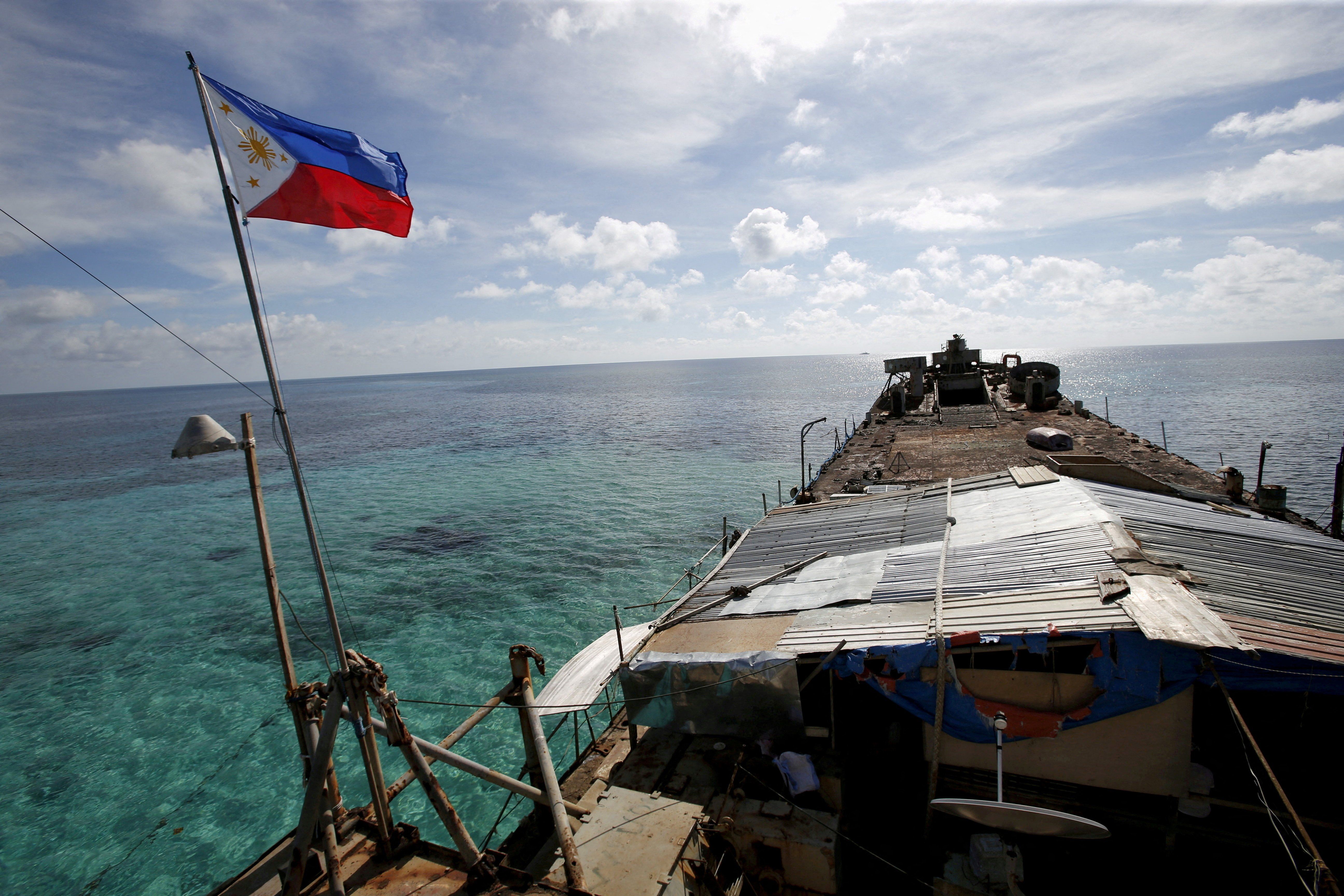A Philippine flag flutters from BRP Sierra Madre, a dilapidated Philippine Navy ship that has been aground since 1999 and became a Philippine military detachment on the disputed Second Thomas shoal in the South China Sea.
Philippine officials say a Chinese coast guard ship and an accompanying vessel rammed a Philippine coast guard ship and a military supply boat in the South China Sea on Sunday. The incidents took place near the Second Thomas, or Ayungin, shoal in the Spratly Island chain near a Philippine naval outpost in an area Beijing claims as its territorial waters.
The outpost was built atop a World War II-era warship that was purposefully grounded in 1999 to serve as a bulwark against China’s expansionism in the area. Situated 200 kilometers off the Philippine coast, its personnel rely on regular resupply deliveries from the mainland. The Chinese coast guard claimed the Philippine vessels “trespassed” “without authorization” despite several radio warnings and blamed the Philippines for the collisions. In response, MaryKay Carlson, US ambassador to Manila, posted to X that “the United States condemns the PRC’s latest disruption of a legal Philippine resupply mission to Ayungin shoal, putting the lives of Filipino service members at risk.”
The confrontations follow a near-miss earlier this month when a Chinese coast guard vessel came within three feet of colliding with a Philippine coast guard ship. In the past few months, Chinese vessels have also reportedly sailed dangerously close to Philippine government ships at which they fired water cannons and deployed “military-grade lasers."
China has long attempted to enforce the “nine-dash line” by which it claims ownership of 90% of the South China Sea. Analysts believe Beijing’s increased belligerence is designed to test the limits of the US-Philippine defense treaty, by using “gray zone” tactics just below the threshold that would trigger US engagement. Should China overstep either by accident or design, however, America could be drawn into yet another armed conflict – when it is already supporting allies on two other fronts, in Ukraine and Israel.